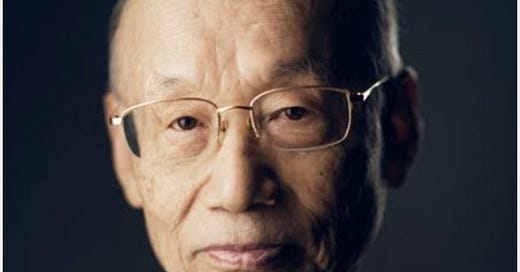
The Parthians feared us; we, in turn, held them in dread, and from the mating of our two fears would come war.
—Memoirs of Hadrian, by Marguerite Yourcenar
Hadrian was the Emperor of Rome in the years 117-138 AD, at the Roman Empire’s zenith. During his reign he constantly contended with the practical problem of how to incorporate people with strong tribal identities into a multiethnic polity. He often found it formidably difficult.
This morning I thought of Hadrian’s troubles when I read an investor newsletter issued by a friend to his clients in which he presents his reflections on the macro social and economic risks of the coming presidential election in November.
As he pointed out, America is now divided into two political tribes. He believes we should be prepared for the possibility that, regardless of the election’s outcome, we will likely experience civil unrest. He did not predict which election outcome will likely produce the more disorderly social outcome. However, it seems to me that if the George Floyd riots of 2020 offer any guidance, we may be in for similar rioting, burning, and looting if Trump wins.
While Democrats often point to the January 6 Capitol "attack,” this riot did not feature incendiary devices, and the rioters did not destroy the building apart from smashing windows, prying open doors, and overturning furniture and file cabinets in Congressional offices. It seems to me that the lack of arson at the Capitol riot sharply distinguishes it from the George Floyd riots in which historic buildings like St. John’s Episcopal Church in Washington were set ablaze.
My friend’s newsletter featured a poignant section in which he reflected on how hard it has become for the two different factions in our society to understand each other. This resonated with me, as I often find myself unable to comprehend or communicate with old friends and even family members who have declared their intention to vote for Kamala Harris.
At moments like these, it’s important to understand that when we disagree about something, we tend to assume we are talking about the same thing. After all, we are both speaking the English language and referring to the same objects. This makes it hard to understand why we view the matter in such opposing ways.
In fact, though we are using the same words and referring to the same objects, we attribute vastly different significance to the same phenomena. A vivid illustration of this lies in the domain of humor. What some people regard as a harmless and funny joke may be viewed as outrageously offensive by others.
While Trump supporters are afraid that Harris will be the puppet of shadowy interests, Harris supporters think it’s a good thing that the chief executive will be constrained by a committee. As they see it, rule by a Harris committee is far preferable to rule by true executive power vested in Donald Trump.
Lately I’ve been wondering if, thousands of years ago, tribal conflict may have served some natural evolutionary function—something like “survival of the fittest tribe.” Rereading Homer’s Iliad a few days ago, I was struck by how much warfare during late Bronze Age Greece was apparently a matter of stealing the other tribe’s young and beautiful women. As distressing as this is for contemporary American sensibilities, I wonder if this was a matter of the stronger warriors get the most attractive females and therefore produce stronger and healthier children.
IF the above conceptualization is plausible, I wonder what it implies for tribal conflict in contemporary America, in which women play such a prominent role. I’d rather face Achilles himself than a legion of female Kamala Harris supporters. The former would give me a quick and painless death, while the latter would vex me to despair.
In an effort to learn more about mankind’s tribal nature, I just ordered The Tribal Mind and the Psychology of Collectivism, edited By Joseph P. Forgas, which appears to be a fascinating book. Dr. Forgas is a Hungarian born Australian who has spent decades researching social perceptions and judgements. I look forward to diving into this book and will post a report as soon as I can.

















Let's see, one side believes in free speech and the other side in censorship by whoever is in charge. One side believes in forcing unnecessary, untested medical treatment that is pushed by criminal pharma companies, the other side believes in the Nuremberg code of informed consent - no forced medical treatment. One side believes the government has a monopoly on weapons, the other side thinks that's bad idea. One side believes in securing elections, the other side believes the looser the rules and easier to cheat the better. One side believes in pitting factions against each other with identity politics, the other side believes in equal treatment - we're all Americans. I could go on. Tribalism is at play, sure, but there's a lot more than tribalism at play here. Like, lucidity.
You are missing some salient points on paragraph 4 regarding the differences between the Jan. 6 protest at the Capitol and the "mostly peaceful" BLM riots. It wasn't just billions of dollars in damage due to arson in the first degree (usually 25 years to life) that differentiated the two acts. There were at least 20 documented murders, including off an duty police officer.
We also now know there were 18 undercover FBI agents and another 20 DHS agents within the crowd on Jan. 6th, who clearly were not there to prevent criminal activity, according to Former Capitol Hill Police Chief Steven Sund per NY Post article Sept 19, 2023.
The mainstream media lies, like an officer being beaten to death with a fire extinguisher, continue to persist to this day and they knew they were lies all along.